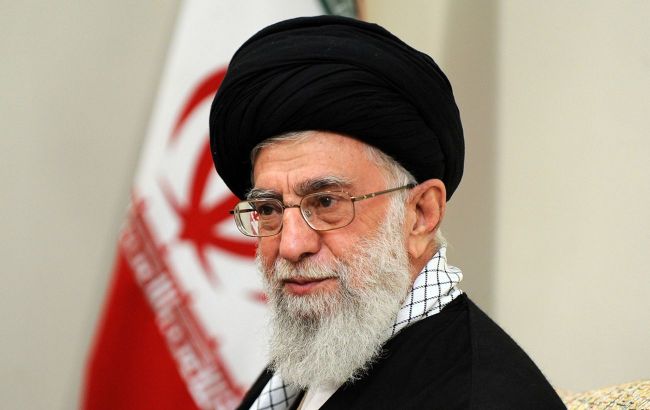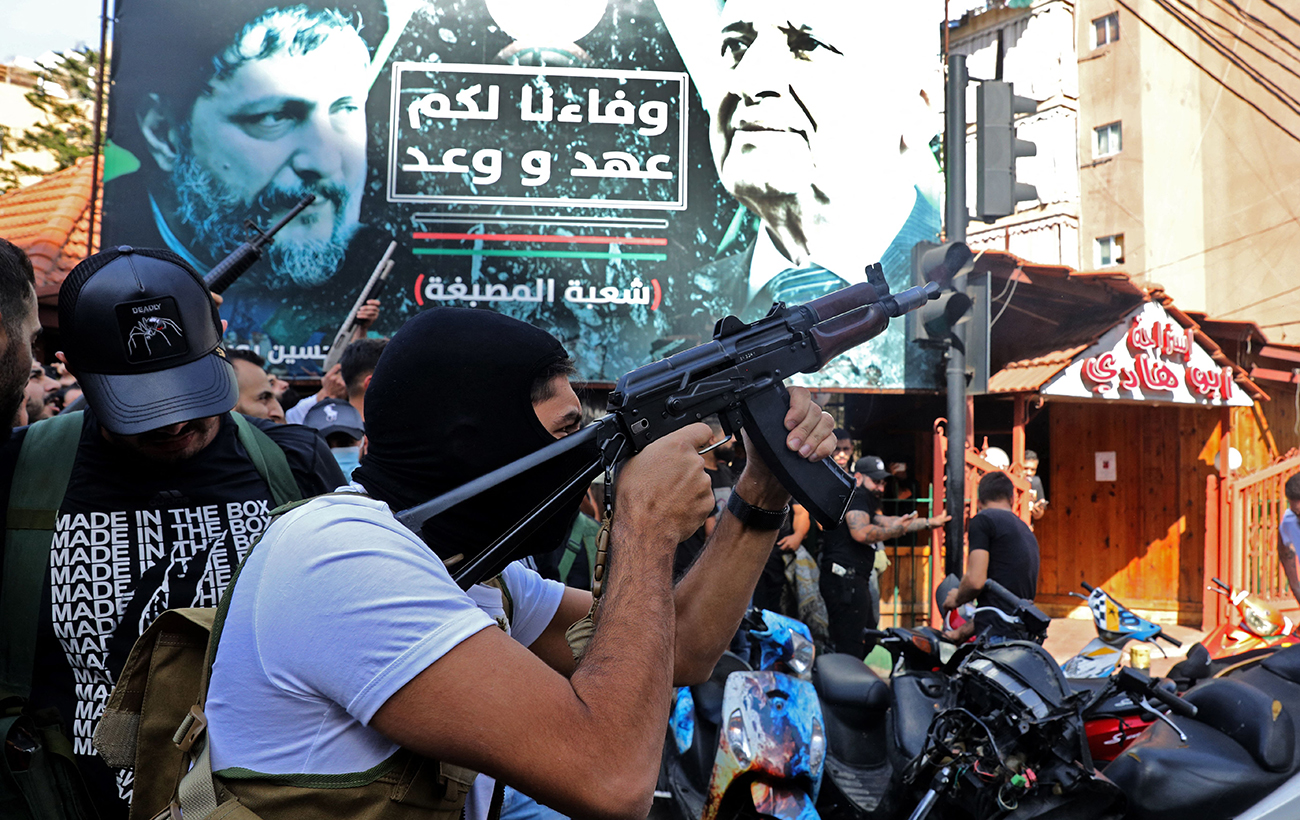Iran-Pakistan conflict: Does new major war threaten East?
 Supreme Leader of Iran, Ali Khamenei (Photo: Getty Images)
Supreme Leader of Iran, Ali Khamenei (Photo: Getty Images)
The issue of whether mutual shelling between Iran and Pakistan could escalate into a full-scale war, akin to the ongoing conflicts in the Red Sea, Gaza Strip, and northern Israel, is explored in this material from RBC-Ukraine.
During the preparation of the article, materials from CNN, Al Jazeera, The Washington Post, and The Wall Street Journal were used.
In the top headlines of international news from global media outlets, the focus has shifted away from the war in Ukraine and even the conflicts in the Gaza Strip. Instead, the attention is now on the mutual shelling between Iran and Pakistan, targeting each other's territories. Undoubtedly, these incidents are part of the broader context of escalation in the region, initiated by the terrorist attack by Hamas on Israel on October 7.
However, judging by the statements and actions of the involved parties, the expectation of the onset of a full-scale war with multiple participants does not seem imminent for now. Iran, being the primary disruptor of peace in the region, currently appears content with actions through various proxy forces and limited provocations against neighboring countries.
Iran and Pakistan
On Tuesday, January 16, Iran launched missile and drone strikes on the bordering Pakistani province of Balochistan. The region is home to the Baloch people, Sunni Muslims who also reside in Iran and Afghanistan. Since the 1970s, there have been separatist movements among the Baloch, aiming to create an independent state.
Fighters from one such group, Jaish ul-Adl, mainly operating on Iranian territory, were declared by Tehran as the targets of the strikes, allegedly for attacking their bases on the adjacent Pakistani territory. However, Islamabad claimed that only civilians, including two children, were affected by the attack.
The uncoordinated and sudden attack unsurprisingly triggered a response from Pakistan on both diplomatic and military levels. On Thursday, Pakistan retaliated with strikes on Iranian territory, once again purportedly targeting Baloch separatist bases. According to Tehran's official statement, nine people, including four children, were killed.
As reported by CNN, Iran and Pakistan have long been combating Baloch separatist groups independently, but the task of striking each other's territory is considered a "very unusual" incident.
However, expecting a sudden escalation, especially between Iran and Pakistan (the latter possessing nuclear weapons), may not be justified. Tehran and Islamabad have released explicitly conciliatory statements, referring to each other as "friendly" and even "brotherly" nations.
Pakistan's strike is not the only recent instance where Iran, directly rather than through proxies, attacked neighboring countries. On Monday, January 15, Iranians shelled Iraqi Kurdistan and Syria. In the former case, the targets were described as "Mossad bases" in northern Iraq, and in the latter, they were "bases of anti-Iranian terrorists" in the Damascus region of Idlib. There has been no notable response from Iraq, Syria, the Kurds, Americans, or other significant players in the region.
Clearly, Iran's increased activity is linked to the ongoing hostilities between Israel on one side and Iran's allies, Hamas and Hezbollah, on the other, which stimulate Tehran to take aggressive actions directly in its own name.
Houthis and the Red Sea
On a global scale, the most prominent front of the multifaceted conflict in the Middle East currently revolves around the Red Sea, where Yemeni Houthis persistently attack civilian vessels systematically. The Houthis are considered one of Iran's primary proxy forces, and the surge in their activity is linked to the Israeli operation against terrorists in the Gaza Strip.
 Houthi militants (photo: Getty Images)
Houthi militants (photo: Getty Images)
The Red Sea is one of the most crucial trade routes globally, accounting for 10-15% of all world trade. Due to the constant threat of attacks, several leading global freight carriers have already announced the rerouting of their vessels around Africa instead of through the Red Sea. This elongates the shipping route between Asia and Europe or vice versa by two weeks, making it more expensive due to increased fuel costs.
The overall flow of container ships through the Red Sea has already dropped by approximately tenfold, causing disruptions in trade chains. Some analysts are comparing the situation to the logistics crisis during the coronavirus pandemic. According to Shell, the crisis in the Red Sea could lead to a 5-10% increase in oil prices in the short term.
To appease the Houthis, the coalition led by the United States and the United Kingdom has conducted several strikes on their military targets. However, a decrease in their activity has not been observed yet. The group's leadership claims they will terrorize vessels in the Red Sea until Israel halts its operation in the Gaza Strip.
As CNN notes, the current escalation in tension in the region is benefiting Iran, but only to a certain extent.
"If these relatively low-level confrontations eventually escalate into all-out war with the US, Tehran’s paramilitary partners could face decimation. That would compromise Iran’s growing influence in the region, deal a blow to the lynchpin of its foreign policy, and stir up trouble at home, where the regime is still reeling from protests that engulfed the country one year ago," says the article.
Israel, Hamas, and Hezbollah
The current escalation in the region began with a Hamas attack on Israel in October, and Israeli military operations in response in the Gaza Strip. As it stands, the situation is far from conclusion. The IDF has managed to gain control over a significant part of Gaza, inflicting substantial damage on terrorist infrastructure. However, the militants still retain the ability to resist and even launch attacks on Israeli territory. The question of releasing over a hundred hostages held by terrorists remains unresolved.
Attempts by numerous Western and Middle Eastern diplomats and intermediaries to organize another round of ceasefires and hostage releases have been unsuccessful so far. Hamas refuses to negotiate without a complete cessation of Israeli operations in Gaza, while the Israeli leadership intends to eliminate Hamas entirely.
Lately, increasing attention has been directed towards another, northern front – the ongoing clashes between Israelis and Hezbollah militants based in southern Lebanon. The Israeli government has been forced to evacuate residents of the border area from their homes, adding further pressure on Benjamin Netanyahu's government to find a resolution to the conflict with Hezbollah, allowing people to return home. At the same time, Hezbollah intends to continue attacking Israeli border territories until Israel ceases its operation in the Gaza Strip.

Hezbollah militants (photo: Getty Images)
The Israel Defense Forces (IDF) are actively conducting training for reservists as part of preparations for a potential operation in southern Lebanon. The Chief of the Israeli General Staff, Aviv Kochavi, stated, "I don't know when the war in the north will start, but I can tell you that the likelihood of it happening in the coming months is much higher than in the past."
The potential opening of a full-fledged second front in the event of an Israeli ground operation against Hezbollah poses a real threat of escalation throughout the region and the involvement of multiple states and paramilitary groups. Among all of Iran's proxy groups, Hezbollah is considered the most valuable.

